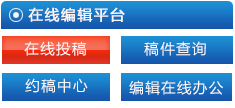应用研究
多元化心理疏导对胃溃疡患者心理状态与治疗依从性的影响
车明珠
【摘要】 目的 分析多元化心理疏导在胃溃疡患者护理工作中的应用价值及对患者治疗依从性及心理状态的影响。方法 选取2018年2月至2021年2月我院内科收治的150例胃溃疡患者作为研究对象,采取随机数表法将其分为两组,分别命名为观察组与对照组,各75例。对照组患者在院期间接受常规护理干预,观察组在其基础上强化心理干预,对比两组治疗依从性、护理干预前后负性情绪评分、生活质量评分。
【关键字】 胃溃疡,心理护理,治疗依从性,负性情绪
中图分类号:文献标识码:文章编号:
[Abstract] Objective To analyze the application value of multiple psychological counseling in the nursing work of patients with gastric ulcer and its effect on patients' treatment compliance and psychological state. Methods A total of 150 patients with gastric ulcer treated in our hospital from February 2018 to February 2021 were selected as the research objects. They were divided into two groups by random number list method, which were respectively named as observation group and control group, with 75 cases in each group. Patients in the control group received conventional nursing intervention in hospital, and the observation group strengthened psychological intervention based on it. The two groups were compared in terms of treatment compliance, negative emotional scores, and quality of life scores before and after nursing intervention. Results The compliance of the observation group was higher than that of the control group, the difference was statistically significant (P<0.05). Before intervention, there were no significant differences in SAS and SDS scores between the two groups (P>0.05). After intervention, SAS and SDS scores in the observation group were lower than those in the control group, with statistical significance (P<0.05). After intervention, the scores of SF-36 in the observation group were higher than those in the control group, with statistical significance (P<0.05). Conclusion Intensifying psychological nursing for patients with gastric ulcer can effectively improve their treatment compliance, improve negative emotions, and improve the quality of life.
胃溃疡是消化内科临床常见病,主要指发生于胃内壁黏膜的溃疡[1]。胃溃疡可发生于任何年龄段人群,以40~60岁人群常见,男性发病率较女性高[2, 3]。本病主要表现为胃部灼烧,同时可伴有消化不良、食欲下降、呕血便血等症状,严重影响患者生活及工作,降低其生活质量[4]。本病病程长,具有较高复发率,短期治疗效果不明显,常导致患者产生负性情绪,影响其治疗依从性,患者产生惰性心理,认为服药短期也不能收效,就索性不服药或随意服药,严重影响治疗依从性[5-7]。为改善患者负性情绪,提高其治疗依从性,本研究将心理护理应用于胃溃疡患者的临床护理中,收效较为理想,现报道如下。
1 资料与方法
1.1 一般资料 自2018年2至2021年2月我院内科收治的胃溃疡患者中抽取150例进行研究,采取随机数表法将其分为观察组与对照组,各75例。观察组中男40例,女35例,年龄18~62岁,平均(42.36±9.33)岁,病程1~10年,平均(5.33±1.31)年。对照组中男43例,女32例,年龄20~60岁,平均(41.98±9.15)岁,病程1~11年,平均(5.18±1.16)年。两组患者上述一般资料对比,差异无统计学意义(P>0.05),具备可比性。纳入标准:①符合胃溃疡临床诊断标准,经胃镜检查证实。②年龄≥18岁。③患者对研究知情,签署知情同意书。④意识清楚,语言表达清晰,具备阅读能力,可配合研究量表填制。排除标准:①合并细菌性痢疾、肠道阿米巴病、克罗恩病等肠道疾患者。②合并心、肝、肾等重要脏器器质性损害者。③中途退出研究者。










